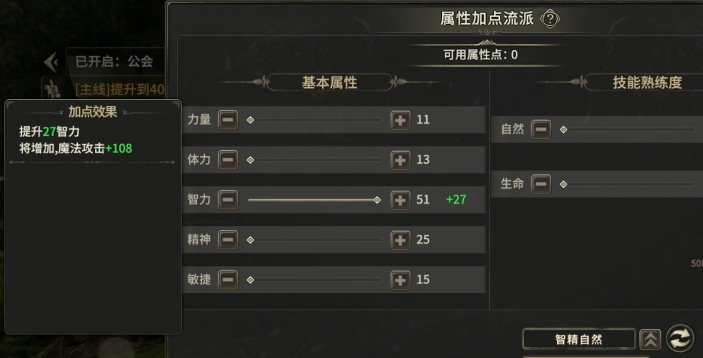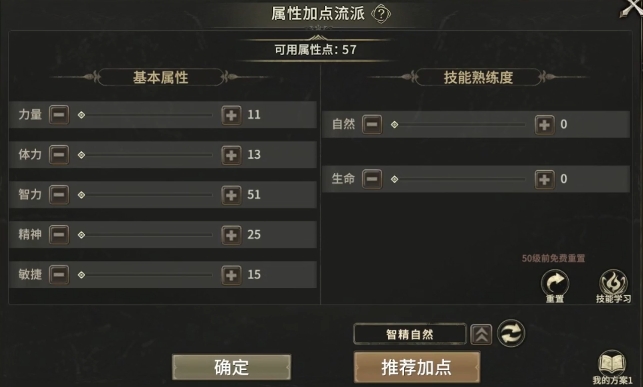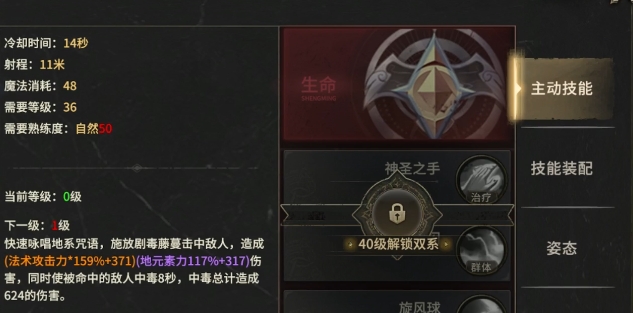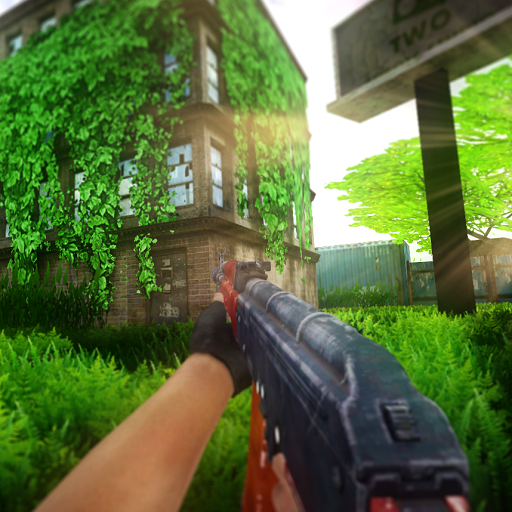In the magical world of Miracle World Origin, as a core profession capable of controlling elemental forces, the strategy for attribute allocation and skill upgrades for mages is particularly crucial. In the mage guide for Miracle World Origin, you can see a reasonable and precise planning scheme that fully taps into the potential of the mage profession. Next, we will provide a detailed analysis of the scientific plan for attribute allocation and skill upgrades that mages should follow at different stages of growth.
In the early stages of the game, mages are in a critical phase of rapidly accumulating experience and deeply exploring the game world. At this stage, determining intelligence as the key attribute to focus on is the wisest choice. It is recommended that players allocate about 80% of their attribute points to increasing intelligence. The emphasis on intelligence is because its enhancement can directly and significantly increase the mage's spell power. When spell power is improved, the damage effect generated by the mage when casting various skills will also increase.

However, while allocating most of the attribute points to intelligence, it is also essential not to neglect the rational combination of other attributes. About 20% of the remaining attribute points should be allocated to agility. This is because, as the character level gradually increases, the requirements for character attributes from various in-game equipment become more diverse and refined. Some powerful equipment with excellent performance often sets certain thresholds for the agility attribute. If the mage lacks sufficient accumulation in the agility attribute, they may miss out on the excellent opportunity to enhance their strength due to not meeting the conditions for wearing such equipment, thus greatly limiting the overall development of the character.
When the game progresses to the mid-stage, the difficulty of dungeons will gradually increase. In this situation, the mage's attribute allocation strategy needs to be appropriately adjusted. At this point, it is still advisable to prioritize intelligence as the main attribute, but the proportion of attribute points allocated to it can be moderately reduced, generally maintaining around 60%-70%. By continuously adding points to the intelligence attribute, it ensures that the mage's output strength remains at a high level during the mid-stage.

During the mid-stage, about 20% of the remaining attribute points should still be allocated to the agility attribute. As the attack patterns of monsters in dungeons become increasingly diverse and complex, the flexibility advantage brought by the agility attribute becomes more prominent. A higher agility attribute value can effectively increase the mage's dodge chance in combat, allowing the mage to move more flexibly when facing dense enemy attacks, cleverly avoiding potentially fatal damage.
Additionally, during the mid-stage, the remaining attribute points need to be reasonably added to the stamina attribute. Enhancing the stamina attribute can increase the character's health points, which is quite beneficial for mages who have naturally lower defense and weaker survival capabilities. By appropriately increasing the stamina attribute, it can, to some extent, compensate for the mage's inherent weakness, enhancing their survival ability in combat, giving the mage more room for error when facing various dangerous situations.

When the game reaches the later stages, after the accumulation in the early and mid-stages, the mage's intelligence value is usually already at a high level. At this point, the focus of attribute allocation needs to shift to the agility and stamina attributes. Among these two attributes, the proportion of agility should be slightly higher than stamina. This is because the core positioning of the mage is always as a damage dealer. Even in the later stages, strong output capability remains the key for the mage to play an important role in the team. A higher agility attribute not only further enhances the mage's dodge ability, making them harder to hit in combat, but also increases attack speed.
While appropriately increasing the stamina attribute can further strengthen the character's survival ability. In the extreme combat environments of the later game content, if the mage does not have enough health points as support, they can easily be killed by concentrated enemy fire. Therefore, by reasonably increasing the stamina attribute, the mage can maintain strong output capabilities while having stronger survival abilities. If players choose to follow the control and support playstyle, then there should also be a scientifically reasonable order for skill upgrades.

It is recommended to prioritize upgrading the Ice Seal Domain and Lightning Chain skills. Ice Seal Domain, as a powerful control skill, can create a cold environment within a certain range, causing enemies to slow down or even freeze, restricting their movement. Lightning Chain can jump between multiple enemies, dealing significant damage and providing some control. After these two control skills, you can upgrade Healing Light and Magic Shield in sequence.
Healing Light is a healing skill in team battles, quickly restoring the health of teammates. It provides effective healing support when teammates are injured or in danger, ensuring the overall combat and survival capabilities of the team. Magic Shield can absorb some of the damage taken by teammates, enhancing the team's overall survival ability. It is a very important support skill in team combat. By upgrading skills in this order, mages can fully play their role in the control and support playstyle.

The above is the content that everyone can master in the mage guide for Miracle World Origin. If you recently want to find out how to use a mage, then the introduction brought by this editor can also bring a certain impact. If you don't know how to allocate points, you can also refer to the introduction brought by this editor.



















